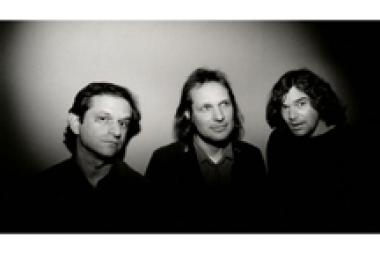The Status Quo – Picturesque Matchstickable Messages from the Status Quo (1968): Although Status Quo (the band dropped “the” from their name in 1969) seems to be a one-hit-wonder on this side of the Atlantic Ocean, they are actually one of the longest-lived and most successful British rock bands: (The) Status Quo has had an amazing 60 chart hits in the U.K., more than any other band, with 22 of those singles landing in the Top Ten. The band formed in 1962 while schoolboys as the Scorpions, later renamed the Spectres. At about the same time as “I Had Too Much to Dream (Last Night)” by the Electric Prunes but on the opposite coast, a Bronx, New York band called Blues Magoos had a hit single with “(We Ain’t Got) Nothin’ Yet” that reached #5 on the Billboard charts. Almost immediately after the song’s original release, in February 1967, the Spectres released their own version of “(We Ain’t Got) Nothin’ Yet”. By the end of that year, the band had changed its name to the Status Quo. In January 1968, they released a psychedelic single of their own, “Pictures of Matchstick Men”, which was a #12 hit in the U.S. and a #7 hit in the U.K. “Pictures of Matchstick Men” was featured in the backing music for the Andy Warhol scenes in the film Men in Black 3 (2012). Picturesque Matchstickable Messages from the Status Quo is the debut album by the Status Quo, with the album name being a takeoff on the name of their hit song. Further psychedelic releases by the Status Quo were less successful, and the band transitioned to a hard rock/boogie band by 1970. While Status Quo never made the U.S. charts again, Status Quo earned a 1977 hit album, Rockin’ All over the World in the U.K.; the album’s title track was former Creedence Clearwater Revival frontman John Fogerty’s minor hit song “Rockin’ All Over the World” from his second solo album John Fogerty (1975). The song gained even wider exposure when Status Quo opened their set at the 1985 Live Aid concert with “Rockin’ All Over the World”; they were just the second band to perform at the London portion of the event (in Wembley Stadium), and the song was used by the BBC to promote their coverage of what is one of the best-known rock concert events to this day.





